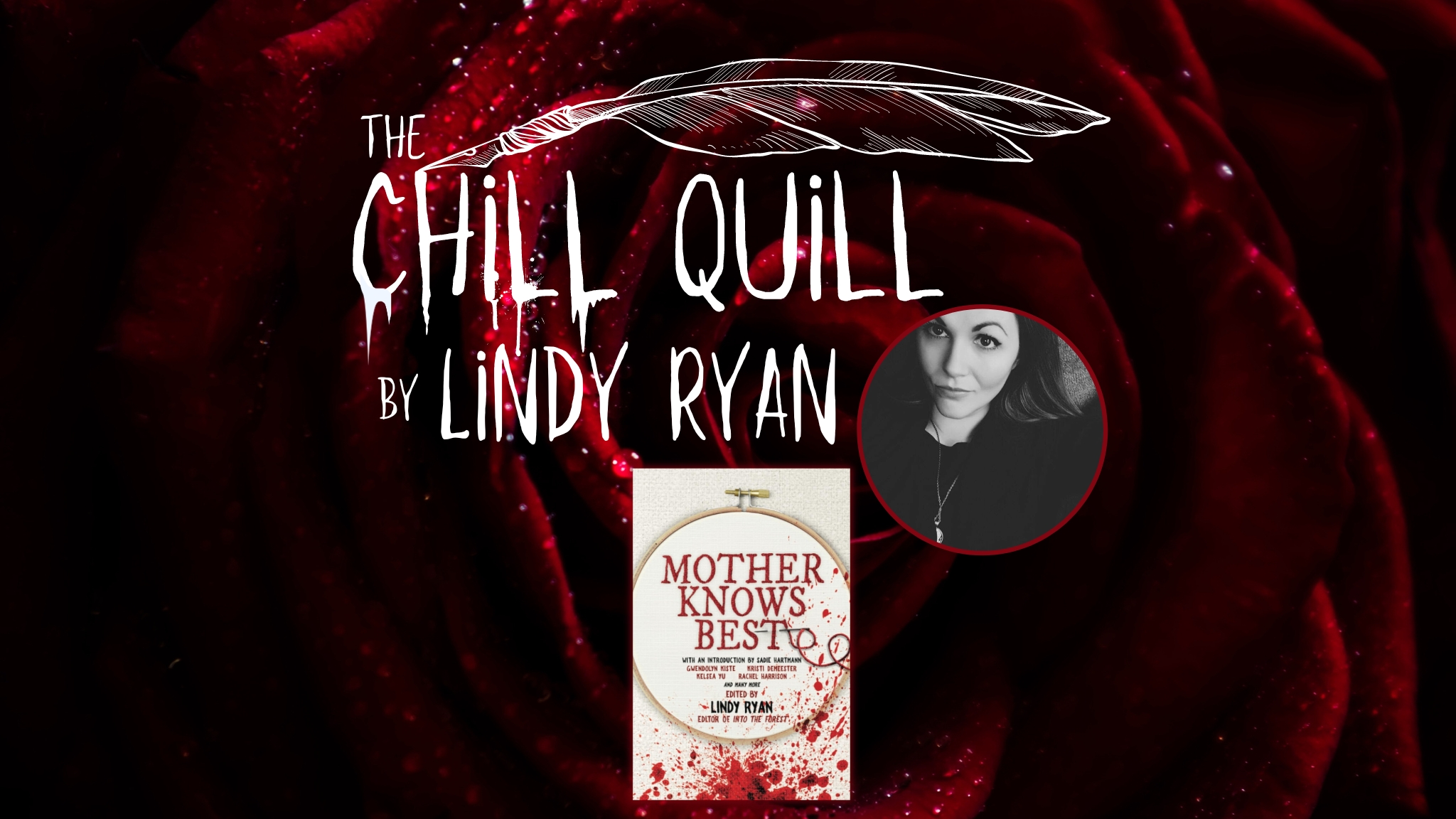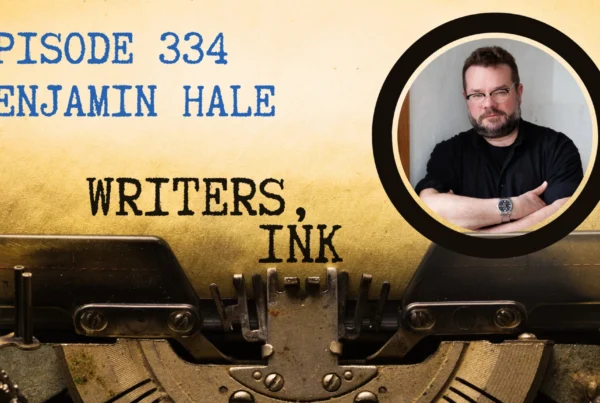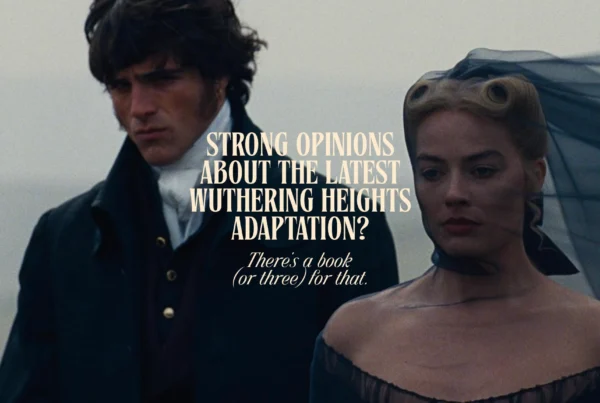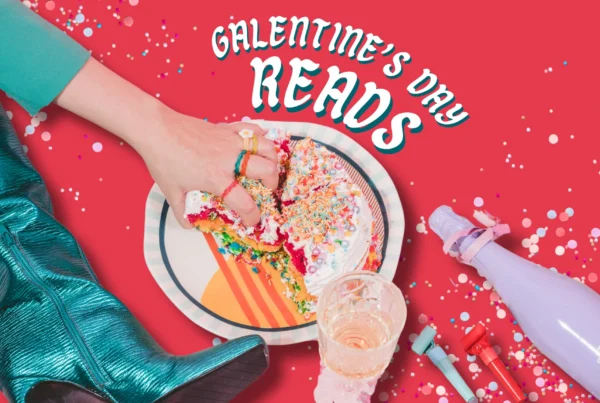From Rosemary’s Baby to Psycho, mothers — and terrifying depictions of everything motherhood — have long been a staple of the horror genre. And for good reason: mothers wield tremendous power. A mother can calm or cut, harm or heal, nurture or needle. Sometimes, she is the savior tucking us into our warm beds. Other times, she is the monster waiting beneath it.
Sometimes, she’s both — and that is the real terror, isn’t it?
Today, women in horror are cooking up a new breed of the mother-as-monster archetype in Mother Knows Best: Tales of Homemade Horror. Just released in time to celebrate our mothers — in all their bloody, motherly glory — this Mother’s Day, this all-new anthology features exclusive short stories and poetry from some of the genre’s fiercest women, including Gwendolyn Kiste (Reluctant Immortals), Kelsea Yu (Bound Feet) and Rachel Harrison (Such Sharp Teeth), with an introduction by Sadie Hartmann (101 Horror Books to Read Before You’re Murdered). Edited by award-winning author-anthologist Lindy Ryan (Into the Forest), Rue Morgue calls this STARRED Women in Horror anthology a “menagerie of maternal nightmares.”
“I personally love the way horror has portrayed motherhood,” says featured contributor Gwendolyn Kiste. “More than any other genre, horror allows us to explore every aspect of what motherhood means. Too often, our society only allows women to be one thing: a good mother who’s enthusiastic about her role in the home. The truth is obviously much more complicated than that, and horror doesn’t shy away from exploring it.”
In Mother Knows Best, Kiste’s story “Your Mother’s Love is an Apocalypse” takes a hard look at the archetype of the bad mom, in particular the way that a mother can have such a cataclysmic effect on her child’s life — and how one can move forward from a potentially devastating influence and learn how to build their own existence when a horror mom threatens not just her daughter, but the whole world. “Horror can of course be terrifying, but it can also be hopeful,” says Kiste, “and that was absolutely the balance that I was looking to achieve in my story.”
In the way that children and the elderly have been used in horror to usurp our expectations of innocence, mothers are similar fodder as our societal hope is that mothers are pure love, the opposite of anything sinister. “This dichotomy is what makes for horrific dissonance when mother is monster,” says contributor Meg Hafdahl, whose table-turning story “Special Medicine” involves a dying mother, haunted by specters of her former, daughter-torturing self.
“We are well aware that mothers are complicated, often evoking feelings of anxiety, hostility, or sometimes worse,” says Hafdahl, who has taken a hard-long look at horror in motherhood, both in her fiction — in her debut novel, Her Dark Inheritance, Hafdahl’s protagonist has to cope with the notion that her mother may be a murderer, and what that means for her own person — and in non-fiction, where, along with co-author Kelly Florence, Hafdahl explores this trope in film in The Science of Women in Horror.
“While we would love for [mothers] to all be visions of pure love, we only need to open a news article in the real world to read about a mother killing her child, exploiting them in social media for money or popularity, or even torturing them through medical abuse,” says Hafdahl. “This will always be fascinating for viewers and creators because motherhood is something we all have in common, whether it is something we are, we come from, or we never had a mother but wonder who our mother was, it is a link that will forever be a human link.”
Of course, it’s not just mothers that can be so terrifying, but the entire concept of motherhood — a monstrous process in itself: the slow, bloody affair of creation, visceral and violent in its impulses, ferocious in its affections.
“I find motherhood a terrifying concept,” says poet-contributor Caitlin Marceau. “Not just the idea of something growing inside of you for nine months, but the way that many women feel their identity is erased after they give birth. They’re no longer insert name here, but instead are just mom. And I find it really interesting that a lot of horror centered on motherhood is grounded in stories where women are trying to reject this title, this fate, this identity.”
When it comes to her brand of mama-trauma, Marceau is a huge fan of helicopter moms and the terror that comes with a mom over-performing their role. This theme is explored as a central plot in her novella, This Is Where We Talk Things Out, and in her Mother Knows Best poem, “Sometimes, It’s Hard To Let Go.”
“I’ve always been close with my mom,” says Marceau, “but like all kids, there were times growing up that I wished for a little more distance between us.”
Mother Knows Best is now available wherever books are sold.
The Chill Quill is a twice-monthly Horror, Suspense and Speculative Fiction column by Lindy Ryan. Read previous editions here.




